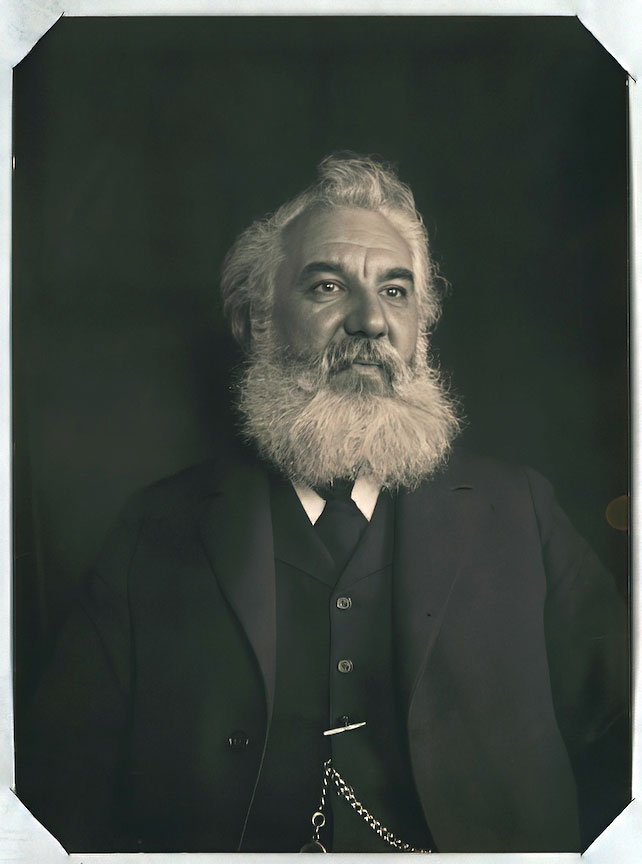Alexander Graham Bell (1847-1922)

Born in Scotland, this creative inventor moved to the US at age 24. Originally a professor of vocal physiology, Bell is best remembered for his invention of the telephone. In 1877, he established the Bell Telephone Company. Bell also founded the journal, Science..
Alexander Graham Bell, born on March 3, 1847, in Edinburgh, Scotland, was an inventor, scientist, and teacher who is best known for his invention of the telephone. Bell’s work revolutionized communication and earned him a prominent place in the annals of history. However, his contributions extended far beyond the telephone, as he was also deeply involved in research related to sound, speech, and the education of the deaf.
Bell was born into a family with a strong interest in sound and communication. His father, Alexander Melville Bell, was a professor of elocution and the inventor of Visible Speech, a system designed to teach the deaf to speak. His mother, Eliza Grace Symonds Bell, was deaf, which had a profound influence on Bell’s life and work. These early influences shaped Bell's career and led to his lifelong dedication to improving communication for the deaf.
In 1870, Bell's family moved to Canada, and shortly thereafter, Bell began working on his invention of the telephone. While teaching at the Boston School for Deaf Mutes, Bell conducted experiments with sound transmission, inspired by his work with the deaf and his understanding of acoustics. He believed that it was possible to transmit speech electronically, an idea that would lead him to create one of the most important inventions in history.
Bell’s work on the telephone began in earnest in 1874, in collaboration with his assistant, Thomas Watson. Bell and Watson experimented with various devices that could transmit sound electronically. After several years of trial and error, Bell succeeded in creating a device that could transmit clear speech over a wire. On March 10, 1876, Bell famously spoke the first words ever transmitted via telephone to Watson: “Mr. Watson, come here, I want to see you.” This moment marked the birth of the telephone and laid the foundation for modern telecommunications.
Bell’s invention quickly gained attention, and in 1877, he and his investors founded the Bell Telephone Company. The telephone rapidly became a commercial success, transforming communication worldwide. Bell’s patent for the telephone, granted in 1876, is considered one of the most valuable patents in history, as it gave him the exclusive right to the technology that would become essential to modern life.
Despite his fame and success with the telephone, Bell continued to pursue a wide range of scientific interests. He was deeply involved in research related to sound, hearing, and speech, and he worked tirelessly to improve the lives of the deaf. Bell founded the Volta Laboratory in Washington, D.C., in 1880, where he and his colleagues conducted experiments on sound recording and transmission. This work eventually led to improvements in phonographs and other audio devices.
Bell was also an advocate for the education of the deaf and was a key figure in the establishment of schools and institutions dedicated to this cause. He believed that the deaf could be integrated into society through the use of speech rather than sign language, a belief that guided much of his work in this area.
In addition to his work on the telephone and sound, Bell was interested in other areas of science and technology. He conducted experiments in aviation, hydrofoils, and even invented the photophone, a device that transmitted sound on a beam of light, which is considered a precursor to modern fiber-optic communication.
Alexander Graham Bell’s legacy extends far beyond the invention of the telephone. He was a visionary who made significant contributions to science, technology, and education. His work has had a lasting impact on the world, shaping the way we communicate and interact with one another. Bell passed away on August 2, 1922, but his inventions and ideas continue to influence the modern world. His life and achievements are a testament to the power of innovation and the enduring human desire to connect and communicate.
 >
>